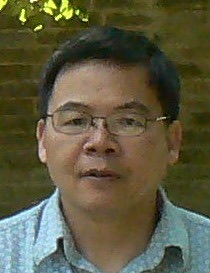
Jianqing Wu, Ph.D.
(John Wu), Ph.D., is a registered patent attorney and an independent inventor having 8 U.S. patents in legal process, file storage security, open public computing systems, and online databases for the consumer market. His research interests touched sciences, engineering, law, and medicine. He earned B.S. in China, and received M.S. and Ph.D. (in Physical Chemistry) from North Carolina State University. He did postdoctoral research in Medicinal Chemistry in University of Illinois at Chicago and the National Institutes of Health. He learned methods and knowledge for characterizing whole complex systems. After he acquired J.D., he systematically studied the performance of the common law model and its adverse impacts on productivity. Being able to access multiple cultures, he conveniently used first-hand data in evaluating trade performance for different production cultures. Recently, he has developed a new interest in preventive medicine with his focuses on methods for preventing heart diseases, stroke and cancer. He was a member of four honorary societies: Phi Lambda Upsilon, Sigma Xi, Phi Tau Sigma, and Gamma Sigma Delta.

Recent Articles by Jianqing Wu, Ph.D.
The PTAB invalidation procedure violates due process because it drags patent owners into endless assaults by patent infringers and patent thieves. Due process requires compliance with standard notions of fair play and justice, which is lacking at the PTAB. The PTAB invalidation process does not afford due process because it allows an unlimited number of infringers and patent thieves to shoot down a patent in a never ending series of challenges. If one challenge misses the target, the second and the third challenge will hit it, or ultimately it will be hit by the Nth challenger. When patents can be attacked repeatedly in such a bizarre way, the patent reward of an exclusive right is a meaningless promise.
The U.S. patent promise of exclusivity has become nothing more than lip service with no credibility for more than half a century. A patent system maintained by offering lip service must fail over time. The American inventor population is vanishing rapidly as a result of the changed laws and anti-patent movement. If the patent reward fails, both those who are inventors and those who would be inventors will be influenced not to pursue innovating and society will see an era of slow progress. Bad policy advice has misled Congress into belief that inventing without the participation of inventors will be fine. Reality will soon prove it was a fatal mistake that the U.S. should not have made.

![[IPWatchdog Logo]](https://ipwatchdog.com/wp-content/themes/IPWatchdog%20-%202023/assets/images/temp/logo-small@2x.png)
